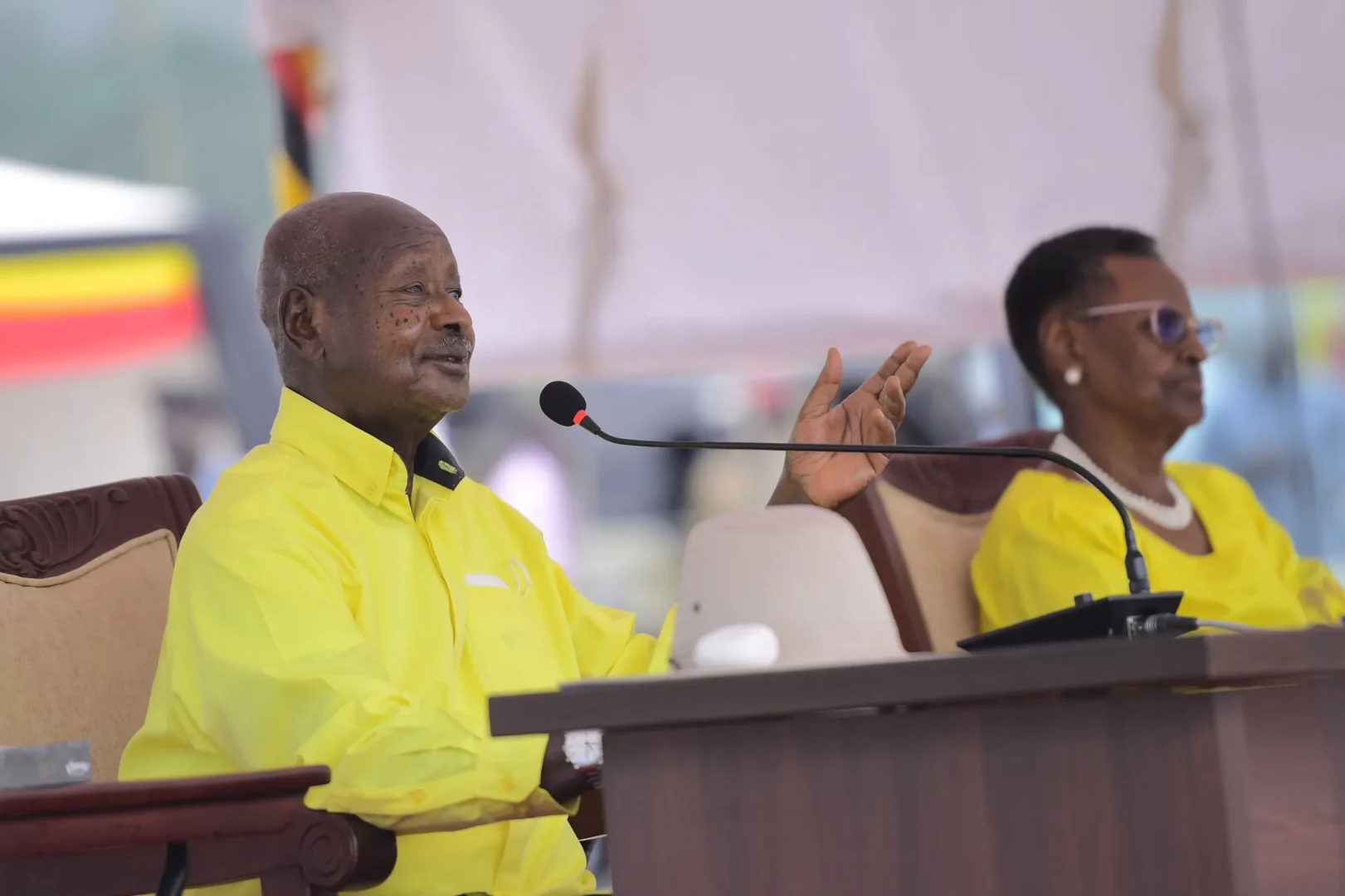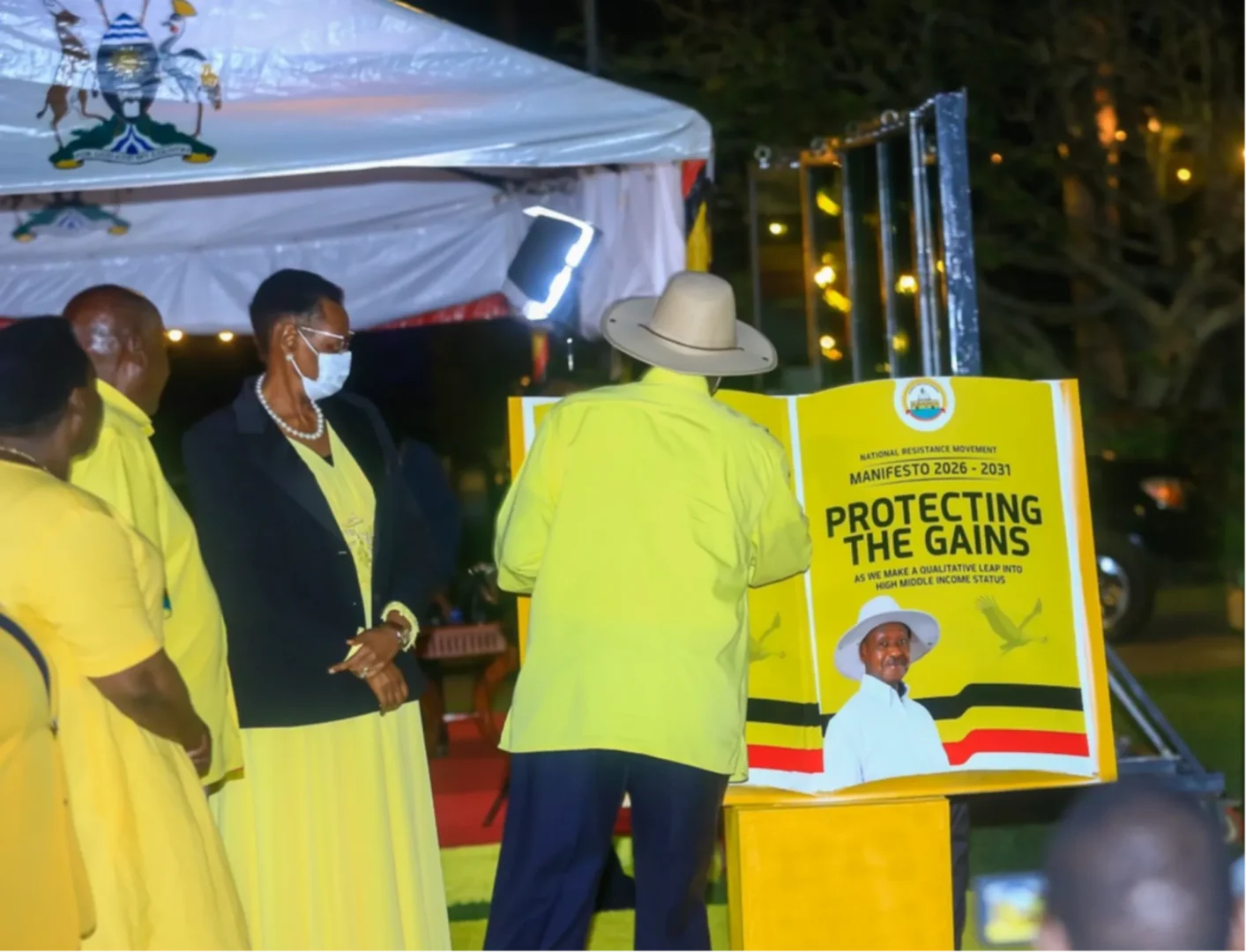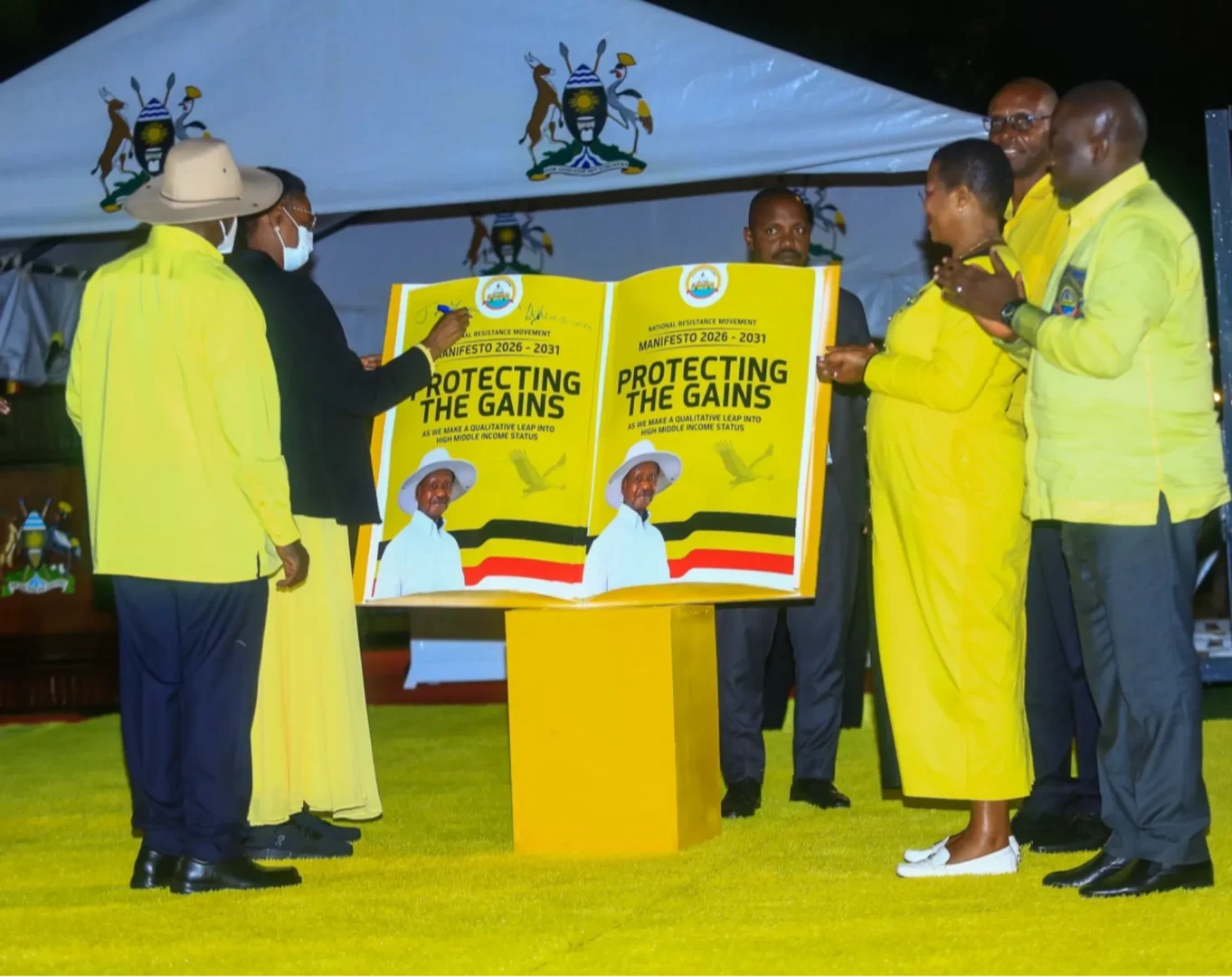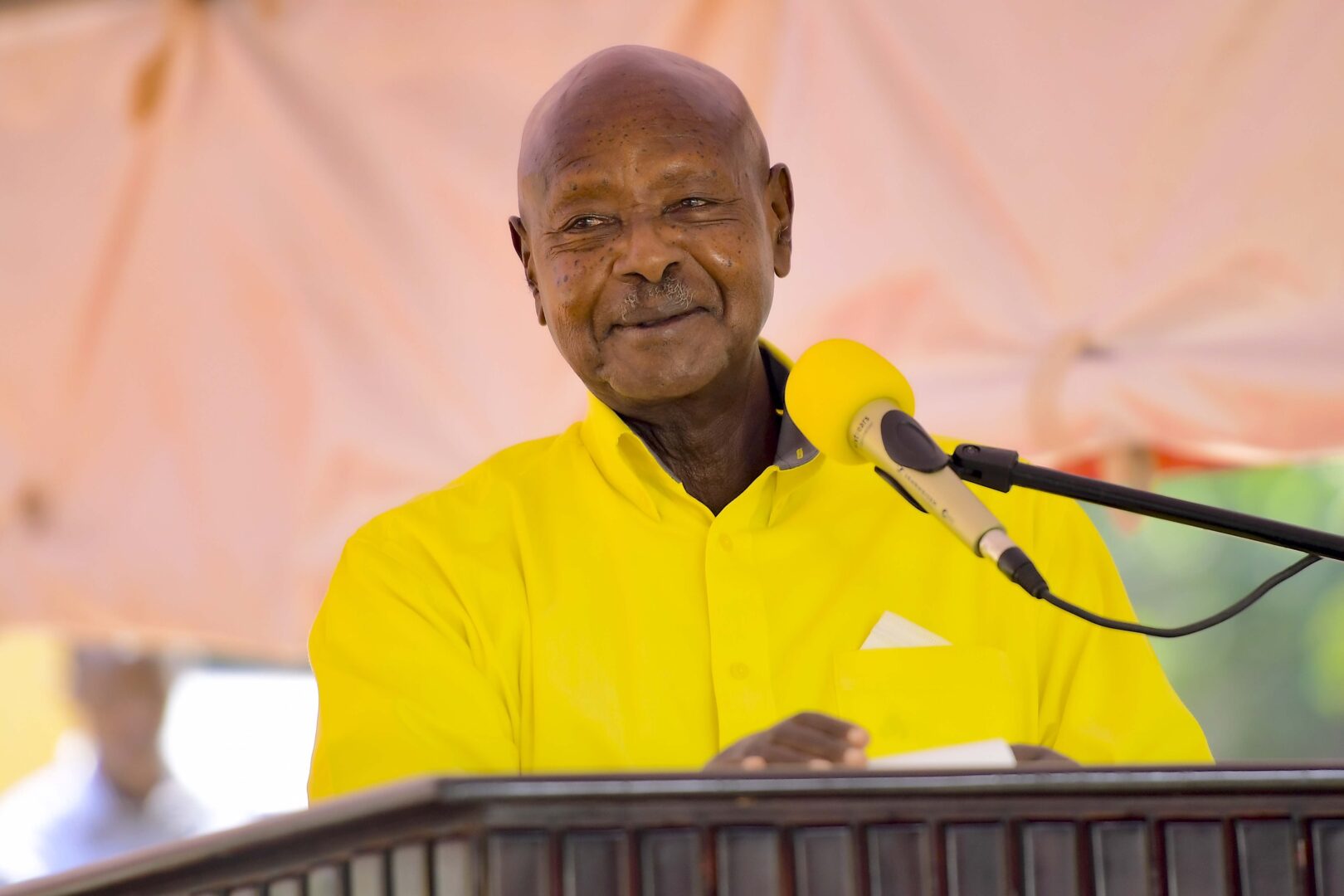KAMPALA, Uganda — President Yoweri Kaguta Museveni, in his capacity as the National Resistance Movement (NRM) party chairman and presidential flagbearer, officially launched the NRM’s 2026–2031 manifesto at a grand ceremony held at the Speke Resort Convention Centre in Munyonyo. The ceremony, drew thousands of enthusiastic supporters and senior officials who marked the occasion by painting the venue in the party’s signature yellow.
In his speech, President Museveni emphasized the critical importance of protecting “the gains” achieved by the NRM over the past six decades.
He outlined seven key pillars of the 2026–2031 manifesto, identifying peace and security as the non-negotiable foundation for Uganda’s continued development.
“We are not just talking about this manifesto, but the work of the NRM for Uganda and with Uganda over the last 60 years. Ensuring a qualitative leap to high middle-income status is our logical next step, given what we have achieved. Everything we are saying is linked,” Museveni declared.

He credited both the Ugandan people and the Uganda People’s Defence Forces (UPDF) for maintaining peace, issuing a stark warning to any potential aggressors: “Our army is very strong, and nobody can bring war here without being destroyed,” he stated.
The focus on wealth creation
While acknowledging security challenges like crime, the President stressed that physical development alone is insufficient without accompanying household wealth. He emphasized the critical difference between national development (infrastructure) and personal wealth (in the hands of the people).
“There is a difference between development and wealth. Wealth is in the hands of the people. When you go to rallies, people talk about districts and cities, but if we focus on wealth first, we cannot go wrong,” he said.

Museveni urged NRM leaders to actively involve citizens in wealth creation, drawing inspiration from successful campaigns in the 1960s that transformed Uganda’s cattle corridor communities.
He argued that wealth generation is the primary engine for job creation, citing the example of State Minister for Transport Fred Byamukama, who reportedly earns Shs 700 million annually from egg farming while employing 26 people.
The President asserted that the majority of jobs are created in the private sector through personal wealth, not public service, and called on citizens to stop seeking work abroad by creating opportunities domestically.
Museveni highlighted Uganda’s vast agricultural potential, noting that utilizing just 7 of the country’s 40 million acres of arable land could generate over 104 million jobs. He also stressed the importance of services and expanding domestic and regional markets—a point he linked to the principles of Patriotism and Pan-Africanism, urging young people to support the East African Federation.
NRM’s progress and future plans
The NRM’s forward-looking agenda for the next five years includes utilizing government programs like the Parish Development Model and Emyooga to help citizens transition from subsistence production to the money economy, thereby fighting poverty and reducing unemployment.
NRM Secretary-General Richard Todwong reviewed the previous term’s achievements, noting that the 2021–2025 manifesto objectives were largely met despite global challenges.

Todwong highlighted that Uganda’s economy has effectively doubled and is projected to reach Shs254.2 trillion by the end of the 2025/26 financial year. He noted that poverty has declined to 16.1%, subsistence farming has reduced, and the Ugandan shilling remains one of Africa’s most stable currencies.
Todwong concluded by listing ongoing priorities for the NRM: creating wealth for the remaining 33% of households still in subsistence production, resolving land-use issues, adding value to agricultural products, developing tourism, and expanding irrigation.
NRM Manifesto 2026–2031 key pillars
- Peace: Ensuring stability and national security as the foundation for progress.
- Development: Driving infrastructure and industrial growth.
- Wealth: Empowering citizens to create and sustain household incomes.
- Services: Improving access to quality health, education, and social services.
- ICT: Harnessing technology and innovation for national advancement.
- Market: Expanding access to domestic, regional, and global markets.
- Strategic Security: Safeguarding Uganda’s sovereignty and long-term interests.

